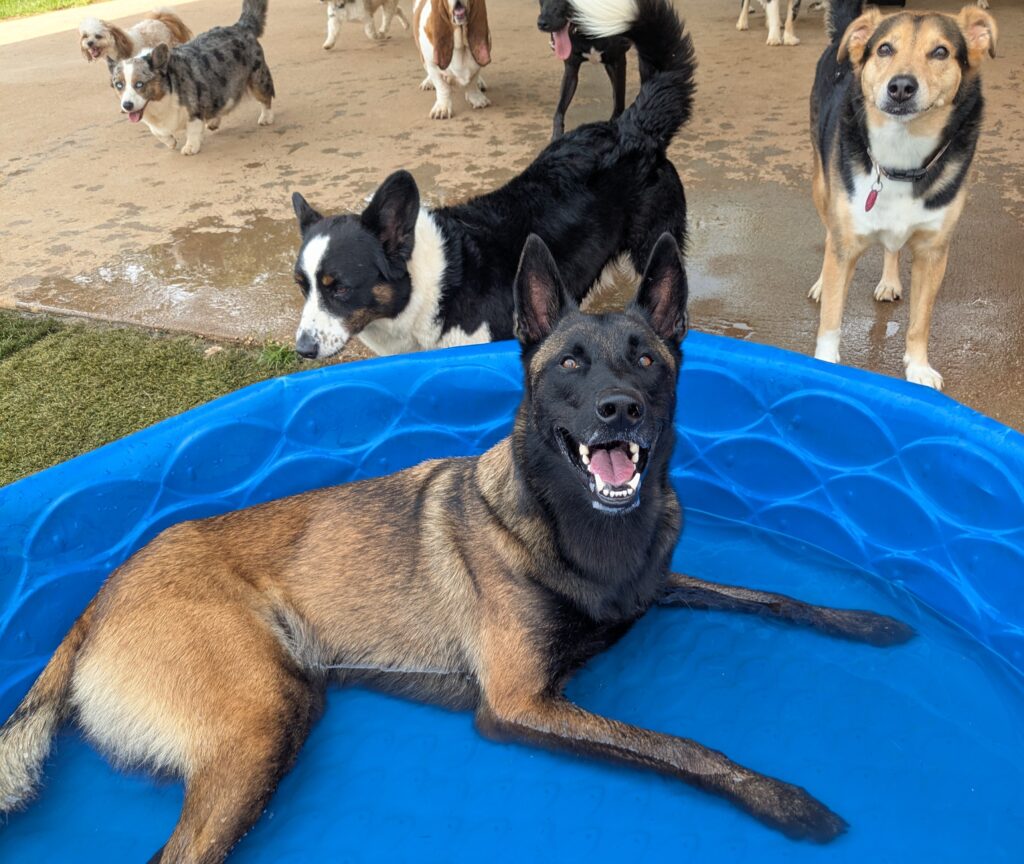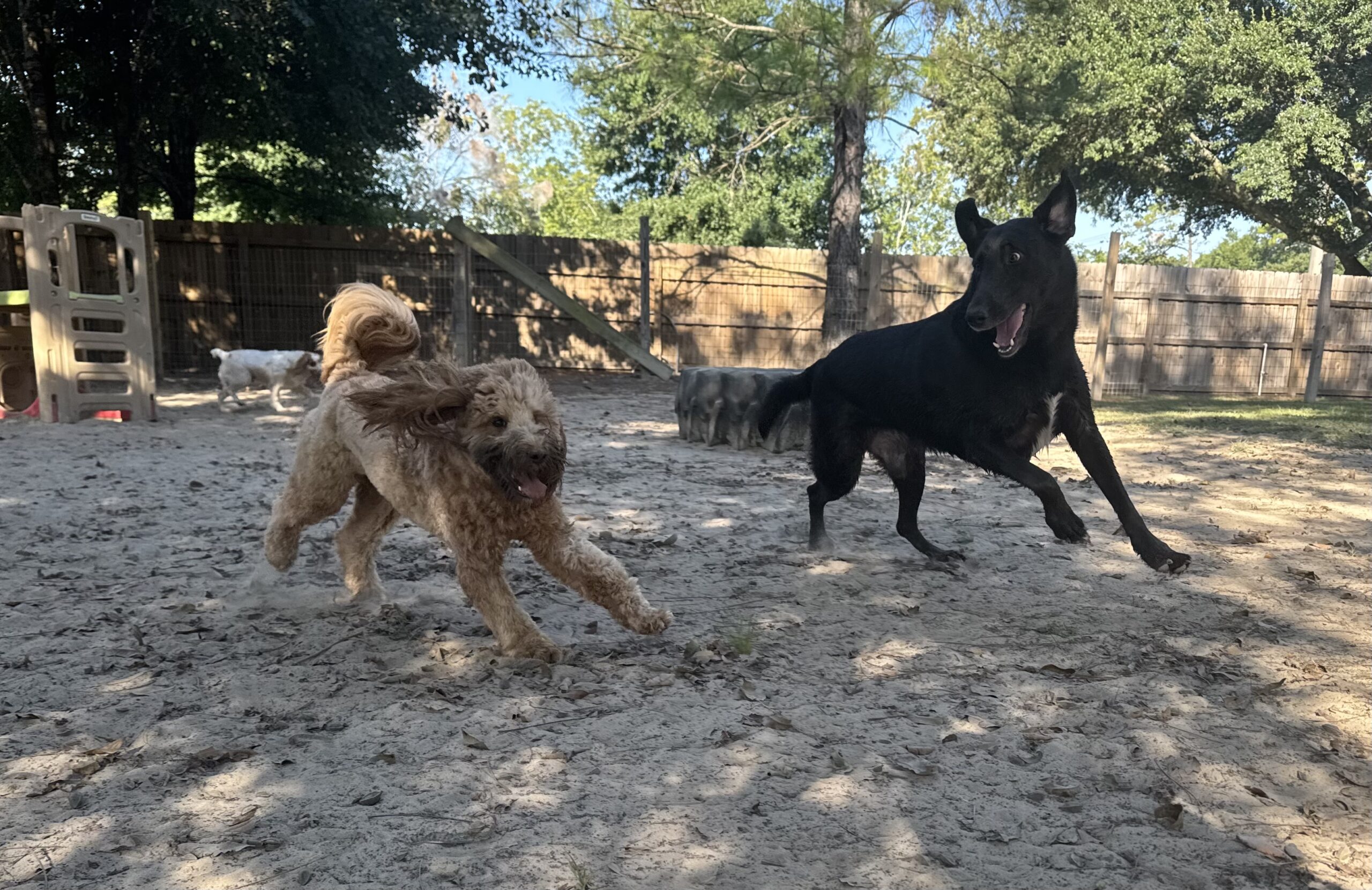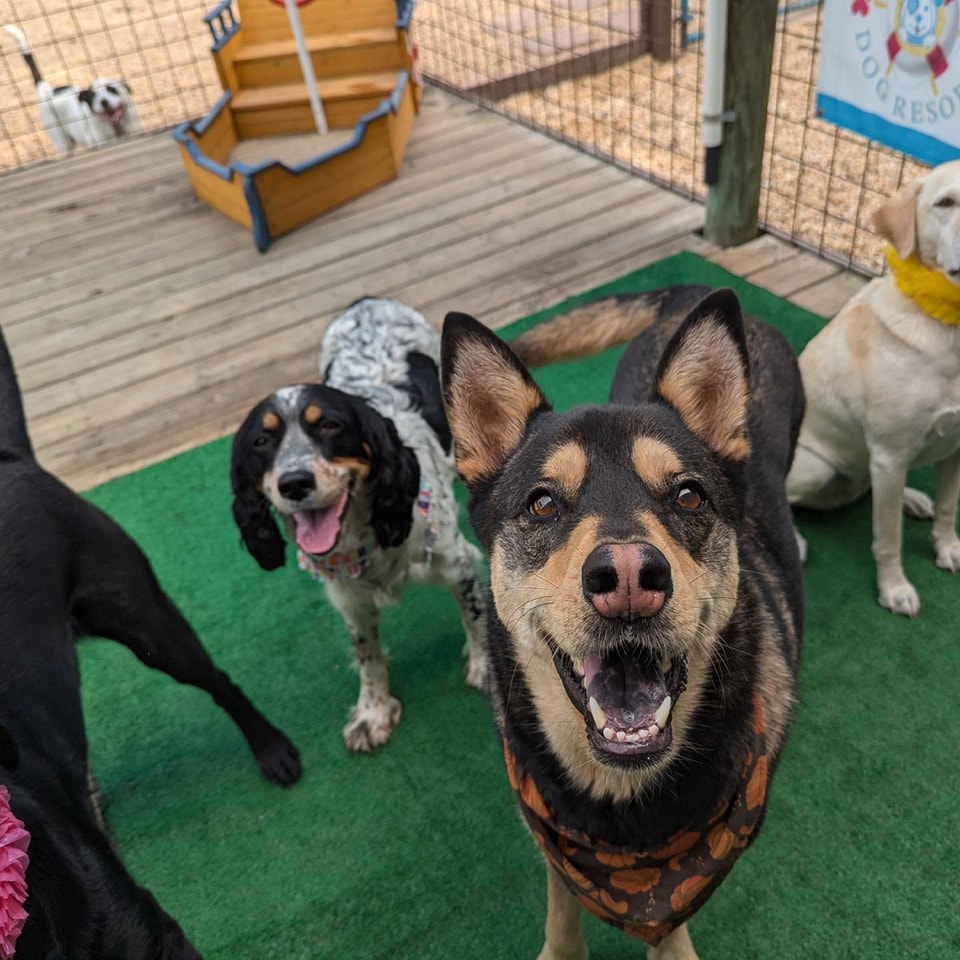Dogs are naturally social animals. In the wild, they rely on interaction with their pack for safety, learning, and companionship. Domestic dogs are no different—they thrive on social connections, whether with other dogs, humans, or their environment. Yet, many dogs today are isolated for large portions of the day, left alone while their owners work, run errands, or travel. Over time, this lack of interaction can lead to behavioral challenges such as separation anxiety, aggression, fearfulness, or destructive habits.
Doggy daycare offers a solution that goes beyond basic care. At SeaPaws, we provide a safe, structured, and supervised environment where dogs can play, learn, and grow. Beyond being a fun experience for your pet, daycare supports social development and helps instill good behavior in ways that are difficult to replicate at home. In this blog, we’ll explore how doggy daycare enhances social skills, improves behavior, and contributes to a happier, healthier pet.
The Importance of Socialization for Dogs
Socialization is a critical component of a dog’s development. Puppies are particularly sensitive to experiences between three and twelve weeks of age, but socialization remains important throughout a dog’s life. Dogs that are exposed to other animals, humans, and various environments in a controlled and positive way are less likely to develop fear-based or aggressive behaviors.
In a daycare setting, dogs learn the nuances of canine communication. They practice reading body language, understanding signals, and engaging in play appropriately. This interaction is essential for establishing confidence and learning boundaries. Dogs that socialize regularly tend to be calmer, more adaptable, and better equipped to handle new situations without stress.
How Structured Play Encourages Positive Behavior
Doggy daycare is more than just free play—it’s structured to encourage positive behavior. At SeaPaws, we monitor group dynamics closely, separating dogs into compatible playgroups based on size, temperament, and energy level. This ensures that each dog can interact safely and comfortably.
Structured play helps dogs practice impulse control. For example, during games of fetch or supervised group play, dogs learn to take turns, respond to commands, and manage excitement. These lessons translate into better behavior at home, reducing issues like excessive barking, jumping, or destructiveness. Regular socialization in a controlled environment reinforces good habits and creates more well-rounded pets.
Reducing Anxiety and Fear Through Exposure
Many behavioral problems stem from anxiety or fear. Dogs left alone for long periods may develop separation anxiety, while dogs with little exposure to new experiences can become fearful of strangers, noises, or other animals.
Doggy daycare provides safe, gradual exposure to a variety of stimuli. From interacting with different dogs and humans to experiencing new toys, scents, and surfaces, your dog becomes more comfortable and adaptable. Over time, these positive experiences reduce anxiety, build confidence, and prevent the development of phobias or aggressive tendencies.
Exercise and Mental Stimulation: Keys to a Happy Dog
Physical exercise and mental engagement are essential for preventing behavioral issues. Dogs that don’t burn off energy often resort to destructive behaviors, chewing furniture, or excessive barking. Daycare provides structured exercise through walks, play sessions, and interactive games.
Mental stimulation is equally important. Problem-solving activities, agility challenges, and enrichment toys keep a dog’s mind sharp and engaged. A tired, mentally stimulated dog is not only happier but also easier to manage at home. Daycare provides this balanced combination of physical and mental exercise, which is difficult to replicate for a dog left alone for long stretches each day.
Building Relationships with Humans and Dogs
Doggy daycare also strengthens your pet’s ability to bond with both humans and other dogs. Staff members provide consistent positive interactions, training reinforcement, and affection, helping dogs learn trust and respect. Interacting with multiple handlers and fellow dogs encourages social flexibility and adaptability.
This kind of exposure is especially beneficial for dogs that may not have siblings, other pets, or frequent visitors at home. Regular positive experiences at daycare build confidence and create a more socially adept pet overall.
How Daycare Supports Training Goals
Daycare can complement at-home training efforts. Dogs exposed to consistent routines, commands, and reinforcement from trained staff often respond better to their owners. Skills like recall, leash manners, and impulse control are practiced in real-world scenarios, reinforcing lessons learned at home.
For dogs undergoing behavioral modification, daycare offers a safe space to practice new skills with guidance from professionals. This consistent, structured environment accelerates learning and helps dogs generalize behaviors outside of the home.
Choosing the Right Doggy Daycare
Not all doggy daycares are created equal. When selecting a facility, consider factors such as staff training, supervision levels, playgroup organization, and enrichment programs. At SeaPaws, we prioritize safety, structured play, and personalized attention. Every dog is evaluated individually, and we work to ensure that each pet’s experience promotes positive socialization and happiness.
Cleanliness, veterinary requirements, and emergency preparedness are also critical. A reputable daycare will maintain strict health and safety protocols to protect all dogs in their care.
The Long-Term Benefits for Your Dog
Regular attendance at a high-quality daycare has lasting effects. Dogs that socialize, exercise, and engage mentally are less prone to behavior problems, separation anxiety, and stress-related health issues. They develop better social skills, stronger relationships with humans and other dogs, and more confidence in new situations.
For owners, the benefits are equally compelling. A well-socialized, happy, and healthy dog is easier to manage at home, travels better, and adapts more readily to new experiences. Daycare isn’t just a convenience—it’s an investment in your dog’s emotional and behavioral well-being.
Conclusion: Socialization Is a Gift That Lasts
Doggy daycare offers more than just supervision—it’s an opportunity to cultivate your dog’s social, emotional, and behavioral health. By providing safe, structured, and enriching experiences, daycare helps your pet thrive in ways that make life better for both dogs and owners.
At SeaPaws, we understand that every dog is unique, and we tailor experiences to meet individual needs. Whether your dog is playful, shy, or somewhere in between, our goal is to promote confidence, positive social skills, and overall happiness.
Investing in regular daycare attendance isn’t just about convenience—it’s about giving your dog the tools to navigate the world with confidence, curiosity, and joy. Because a well-socialized dog is not only happier but also a better companion for life.







